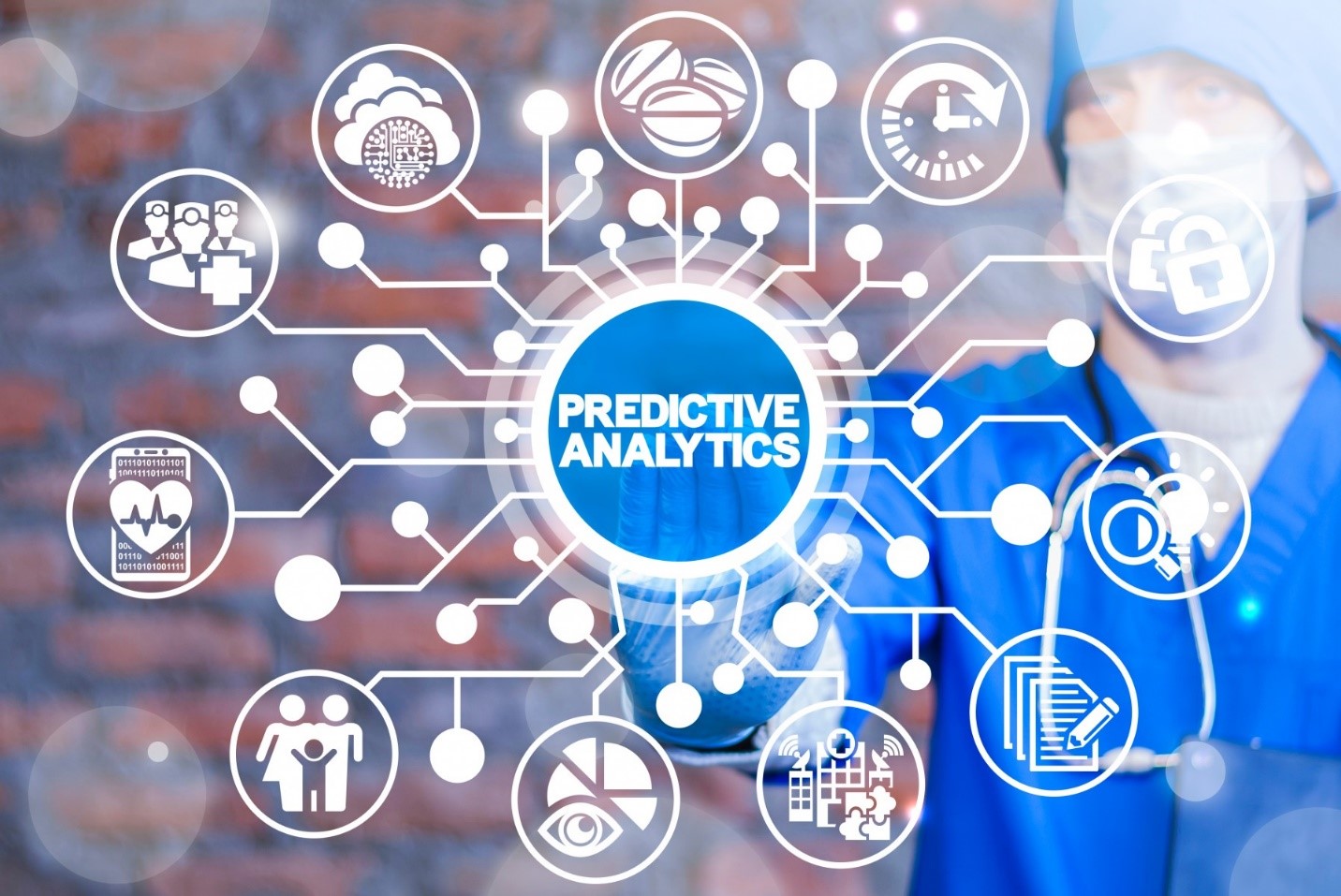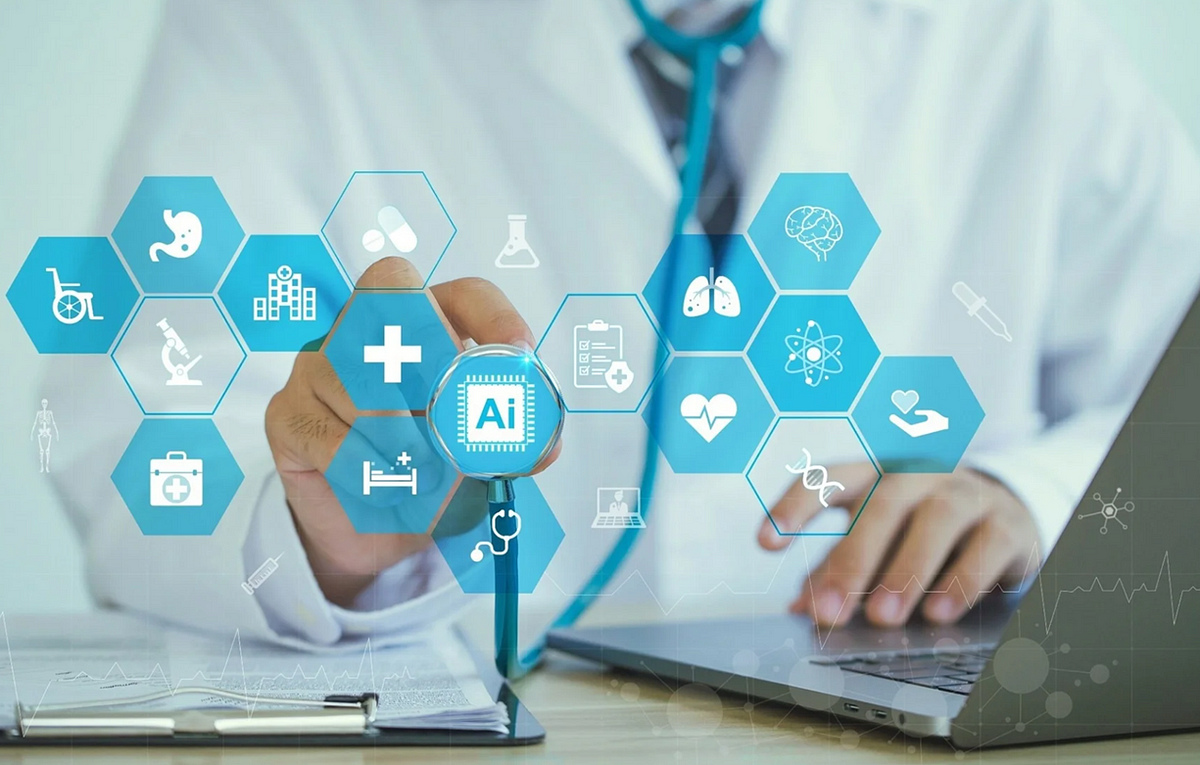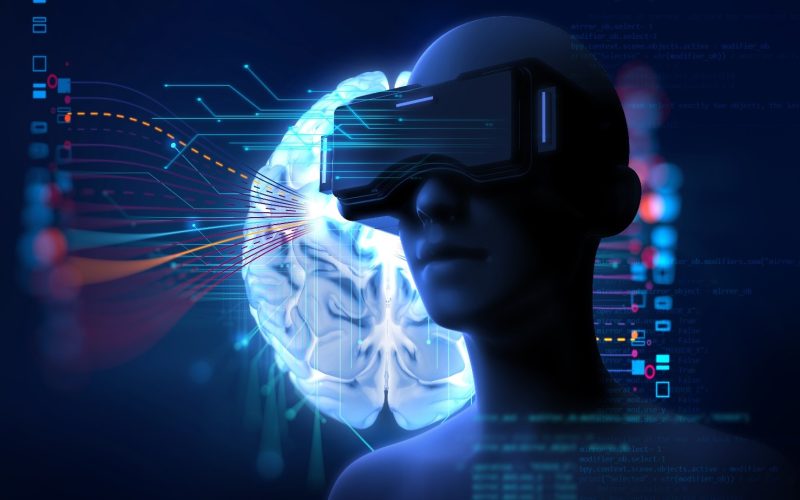In the rapidly evolving landscape of medical technology, Artificial Intelligence (AI) has emerged as a transformative force, particularly in the realm of diagnostic accuracy. This article delves into the multifaceted ways AI is revolutionizing diagnostics, with a professional focus on its implications for healthcare providers, patients, and the broader medical community.
The Advent of AI in Diagnostics
Artificial Intelligence, encompassing machine learning (ML) and deep learning (DL), has made significant inroads into various sectors, but its impact on healthcare is particularly profound. Traditional diagnostic methods, while effective, often rely on the subjective interpretation of medical professionals, which can lead to variability in diagnosis. AI, with its ability to analyze vast amounts of data with precision, offers a promising solution to enhance diagnostic accuracy and consistency.
Enhanced Imaging Interpretation
One of the most prominent applications of AI in diagnostics is in medical imaging. Radiology, for instance, has seen a paradigm shift with the integration of AI algorithms. These algorithms can analyze images from X-rays, CT scans, MRIs, and other imaging modalities with remarkable accuracy. Studies have shown that AI can detect anomalies such as tumors, fractures, and other pathologies at a level comparable to, and sometimes exceeding, that of experienced radiologists.
For example, Google’s DeepMind has developed an AI system that can diagnose over 50 eye diseases with an accuracy rate of 94%, matching that of leading eye specialists. Similarly, AI algorithms have been used to identify early signs of lung cancer in CT scans, significantly improving early detection rates and patient outcomes.
Predictive Analytics and Early Detection
AI’s ability to process and analyze large datasets enables predictive analytics, which can be pivotal in early disease detection. By examining patient data, including genetic information, lifestyle factors, and historical medical records, AI can identify patterns and risk factors that may not be immediately apparent to human clinicians.
For instance, AI-driven predictive models are being used to forecast the onset of diseases such as diabetes and cardiovascular conditions. These models can provide healthcare providers with actionable insights, allowing for early intervention and personalized treatment plans. The result is not only improved diagnostic accuracy but also enhanced preventive care, ultimately reducing the burden on healthcare systems.

Precision Medicine
Precision medicine, which tailors treatment plans to individual patients based on their unique genetic makeup and other factors, is another area where AI is making significant strides. AI algorithms can analyze genomic data to identify specific mutations and biomarkers associated with various diseases. This information can then be used to develop targeted therapies that are more effective and have fewer side effects compared to traditional treatments.
For example, in oncology, AI-driven genomic analysis can help identify the most effective treatment protocols for cancer patients based on their genetic profile. This approach not only improves diagnostic accuracy but also enhances treatment outcomes, offering new hope to patients with previously untreatable conditions.
Natural Language Processing (NLP) and Electronic Health Records (EHRs)
The integration of AI in natural language processing (NLP) has revolutionized the way electronic health records (EHRs) are utilized. NLP algorithms can sift through vast amounts of unstructured data in EHRs, extracting relevant information and identifying patterns that may be indicative of underlying health issues.
By automating the analysis of clinical notes, lab reports, and other medical documents, AI can provide healthcare providers with a comprehensive overview of a patient’s health status. This not only improves diagnostic accuracy but also streamlines the decision-making process, allowing clinicians to focus more on patient care.
Challenges and Ethical Considerations
While the benefits of AI in diagnostics are undeniable, there are also challenges and ethical considerations that must be addressed. One of the primary concerns is the potential for bias in AI algorithms. If the training data used to develop these algorithms is not representative of diverse populations, there is a risk of biased outcomes that could disproportionately affect certain groups.
Moreover, the integration of AI in healthcare raises questions about data privacy and security. Ensuring that patient data is protected and used responsibly is paramount. Regulatory frameworks and guidelines must be established to govern the use of AI in diagnostics, ensuring that it is implemented ethically and transparently.

The Future of AI in Diagnostics
The future of AI in diagnostics is promising, with ongoing advancements poised to further enhance diagnostic accuracy and patient care. Emerging technologies such as federated learning, which allows AI models to be trained on decentralized data sources while preserving privacy, hold great potential. Additionally, the continuous improvement of AI algorithms through collaboration between tech companies and healthcare institutions will drive innovation and refine diagnostic capabilities.
As AI continues to evolve, it is essential for healthcare providers to stay abreast of these developments and integrate AI-driven tools into their practice. By embracing AI, the medical community can harness its full potential to improve diagnostic accuracy, enhance patient outcomes, and ultimately transform the landscape of healthcare.
Conclusion
In conclusion, AI is playing an increasingly pivotal role in enhancing diagnostic accuracy across various medical fields. From improved imaging interpretation and predictive analytics to precision medicine and NLP-driven EHR analysis, AI offers a multitude of benefits that are revolutionizing healthcare. However, it is crucial to address the challenges and ethical considerations associated with AI to ensure its responsible and equitable implementation. As we look to the future, the continued integration of AI in diagnostics holds the promise of more accurate, efficient, and personalized healthcare for all.










